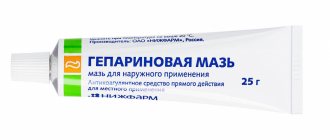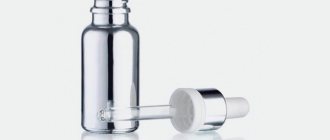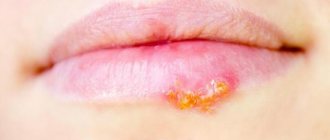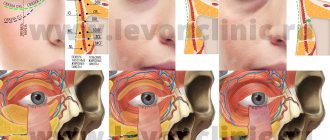Tablets for toothache relief
Review of painkillers
Disadvantages of tablets
Painkillers for pregnant and nursing mothers
What not to do if your tooth suddenly hurts
In most cases, the first thing people do when pain occurs is take pills. This is the most common and accessible way to get rid of unpleasant sensations. Of course, the ideal solution would be to see a doctor, but there are different situations: there is no time, clinics are closed (tooth pain at night), financial situation, etc. We provide a list of the most effective remedies for toothache and we hope that you will use them only as a last resort case.
Other medications for tooth pain
There are many other forms of painkillers that also help cope with the symptoms of acute toothache. The list of popular drugs is presented:
- Gels - used in childhood during teething; a similar effect is observed when the last molars appear in adults. Frequently used medications are represented by Cholisal, Solcoseryl, Dentol, Kamistad, Metrogyl Dent.
- Dental drops are safe preparations due to their natural components. In addition to the analgesic and sedative effect, the active ingredients affect inflammatory processes. Treatment is carried out by Denta, Dentaguttal, Dentinox, Dantinorm.
- Injections - to solve the problem, you can use conventional intramuscular medications (Ketonal, Ketorol, Diclofenac) or point-spectrum agents. Injection forms are used before tooth extraction or dental therapy; a strong analgesic effect is obtained when using Septodont, Ultracaine.
- Sprays or aerosols - local anesthesia is achieved by spraying a solution over the problem area. Inexpensive and affordable means include Lidocaine spray.
If you have acute or aching pain, you should not get carried away with any of the above medications. Regular use will reduce their effectiveness and will require an increase in dosage. After the first suppression of painful sensations, the patient should attend a consultation with a dentist. The doctor will help you find out the cause of the toothache and select appropriate therapeutic procedures.
Review of painkillers
Table 1. Painkillers
| Drug name | Appearance | Characteristics and action |
| Nimesil | Available in the form of tablets, granules, suspensions. Recommended for mild to moderate toothache. | |
| Nise | Available in various forms. Suitable for mild to moderate pain. | |
| Ketorol | Available in the form of tablets and capsules for injection. Will help relieve moderate to severe pain. Maximum dose per day – 3 tablets | |
| Ibuklin | Available in tablet form. Recommended for mild to moderate pain. | |
| Tempalgin | Has anti-inflammatory and antipyretic effects. Does not irritate the gastric mucosa. | |
| Nurofen | Available in the form of tablets, suspension and gel (for external use). | |
| Took | Available in tablet form. Helps relieve moderate toothache. | |
| Analgin | Available in various forms. The maximum dose per day is 4 tablets. |
“Remember that the pill is a temporary way to relieve pain.
The effect of the drug will wear off, and the pain may return because the cause itself has not been eliminated. If after the first “bells” you do not go to the dentist, the disease will continue to progress. Each time the pain will get stronger and stronger" Irina Vinogradova, Dentist-therapist, endodontist, head of the department of therapy and periodontology, member of the medical council of the network of clinics "STOMPRAKTIKA.RF"
Fast and effective remedies
Pharmaceuticals have developed very widely in recent years. Pharmacies have a huge selection of medicines. Deciding which one will really have the desired effect and do it in the shortest possible time is not easy. When a toothache occurs, there is no time to delay, because it worsens your well-being so much that those suffering from unpleasant sensations are haunted by one desire: to get rid of it as soon as possible.
To avoid guessing which painkiller is best to choose in case of toothache, study the list below of drugs available in pharmacies that have proven their effectiveness and quick action.
So, in case of severe pain, you should give preference to one of the following drugs:
- Nise;
- Ketarol;
- Ibuprofen.
To cope with moderate and mild discomfort, medications such as:
- Ketanov;
- I took it.
You can also use anti-inflammatory drugs, which will not only relieve pain, but also help fight its source. These drugs include:
- Ketonal;
- Actasulide;
- Nurofen;
- Moment.
Let us consider the features and characteristic properties of each drug in more detail.
- Nise. This drug belongs to the category of potent drugs. Produced in India, it is supplied to the shelves of Russian pharmacies almost uninterruptedly. Nise, just a couple of minutes after its use, relieves even acute and severe toothache. The effect lasts for 6 to 8 hours. If pain occurs, it is recommended to take one tablet. It is quite enough to relieve pain. In large quantities, this type of medication can cause a skin rash, nausea, and pain in the stomach. Nise is not recommended for use by pregnant women.
- Ketarol. Also belongs to the category of potent drugs. It can only be taken in limited quantities - up to three tablets per day. The drug has an analgesic effect very quickly, but subject to simultaneous intake of a large amount of liquid. Therefore, Ketarol is washed down with a whole glass of water. Pregnant women should not take this drug to avoid the negative effects of potent substances on the fetus.
- Ibuprofen. Another remedy from the category of potent ones. This drug can be used during pregnancy, as it is less toxic than the previous medications on the list. It is recommended to take one Ibuprofen tablet when a toothache occurs. If the desired effect does not occur, then after four hours you can drink another one.
- Ketanov. This drug is recognized as one of the best in the fight against toothache. The analgesic effect is caused by ketorolac, which is part of the drug. However, this drug should also be taken with caution. Pregnant women, children under 16 years of age, as well as those who suffer from bronchial asthma should refrain from using this drug. Side effects of Ketanov include nausea, drowsiness, dry mouth, and dizziness.
- I took it. This drug does not combine well with other drugs, but works well for moderate to mild pain. Its intake is allowed in quantities of up to 6 tablets per day. As a side effect, allergies, chills, rapid heartbeat, decreased blood pressure and heart rate may occur.
- Ketonal. Belongs to the category of anti-inflammatory drugs. Acts quickly, reducing fever and pain. Children under 15 years of age should not take it. There are also a number of side effects when using it: nausea, loose stools, vomiting, increased fatigue and nervousness.
- Actasulide. An effective anti-inflammatory agent that requires caution when taking. Actasulide is not recommended for children under 12 years of age, pregnant and lactating women, as well as those who suffer from renal, liver and heart failure, stomach or intestinal ulcers, and diabetes.
- Nurofen. A very effective and popular remedy. Nurofen relieves pain, as well as inflammation of the soft tissue of the gums. This effect is achieved due to the codeine content in the tablets. It is not recommended for use with hypertension, Crohn's disease and liver and kidney defects.
- Moment. A popular medicine with anti-inflammatory and analgesic effects. A moment relieves pain and fever. It can be taken ½ tablet three times a day. Mig can be consumed in this mode for no more than 7 days. This medicine is contraindicated in pregnant women and people with diseases of the optic nerve and blood.
In addition to the drugs listed above, you can also purchase products with a so-called freezing effect in pharmacies. They relieve pain quickly and effectively. These include drugs such as Kamistad, Dentol, Metrogyl.
If a toothache occurs in a pregnant woman, then it is best to use traditional medicine to relieve it. In the event that they do not have the desired effect, it is possible to take Ibuprofen, as well as medications such as No-shpa, Spazmalgon, Baralgin, Analgin.
Disadvantages of tablets
Painkillers also have a downside: almost all pills have side effects.
- Negatively affect the functioning of the digestive system. Erosion and ulcers can form on the walls of the stomach, so if there are problems with the gastrointestinal tract, it is better to choose a different method.
- Disturbs liver function.
- They can cause headache, shortness of breath, swelling, skin rashes, etc.
Most analgesics are prohibited for expectant and nursing mothers, young children and people with systemic diseases that are included in the list of contraindications. Therefore, it is recommended to consult a doctor before use.
Non-dental reasons
The doctor’s task when treating a patient with pain is to establish that it was dental problems that caused the deterioration in health. For this purpose, the specialist conducts differential diagnostics. The doctor compares and then excludes other diseases that manifest symptoms similar to dentalgia.
The specialist will have to make sure that there are no pathologies of the neurological, cardiovascular system, or ENT organs. These diseases include:
- Neuralgia . The trigeminal nerve is present in the human body. The structure provides sensitivity to the face and oral cavity. With inflammatory damage to the trigeminal nerve, the patient experiences intense pain. Clinical manifestations are complemented by irritability, swelling of the cheeks, and lacrimation. Standard analgesics are practically ineffective, and when they reduce discomfort, the result does not last long. Inflammation of the trigeminal nerve is treated by a neurologist. An experienced dentist is able to immediately determine that the disease does not apply to his profile.
- Migraine . The headache is characterized by unilateral localization. The patient's general well-being worsens from loud sounds and bright lights. The location of pain can migrate - cover the temporal, parietal region. Debilitating discomfort spreads to the orbit and frontal part. When the condition is left untreated for a long time, standard analgesics do not have the expected effect. Then the intensity increases, and the patient mistakenly perceives the headache as a toothache.
- Otitis. Inflammation of the ear canal most often occurs in children, but also occurs among adults. Clinical manifestations of the disease are hearing loss, throbbing pain on one side of the head. An unpleasant sensation spreads to the lower jaw.
- Violation of the functional ability of the heart (angina pectoris, myocardial infarction). Pain syndrome is predominant in this case. An unpleasant (burning, pulsating) sensation spreads to the left shoulder blade, shoulder, and lower jaw. If the heart rhythm is disturbed, the patient notes pain in the lower jaw. This becomes a reason to suspect problems with the condition of the teeth. In the process of performing diagnostics, the doctor focuses on the clinical picture and examination results. To determine the cause of dentalgia, a person seeking help will have to undergo several diagnostic procedures.
Talk out loud more
Without teeth, the tongue in the oral cavity is much more spacious, so after the appearance of a prosthesis in it, it becomes more difficult for a person to pronounce many sounds. To quickly restore diction:
- try to talk as much as possible, read aloud, loudly and in a whisper;
- practice pronunciation by repeatedly repeating words with sounds that are difficult for you, for example s, zh, r;
- say tongue twisters repeatedly several times a day;
- do articulatory gymnastics.
Such training will help you quickly learn to speak clearly with a removable denture.
What to do if the pills don't help?
It often happens that even after taking strong painkillers, toothache does not subside. This happens for many reasons: advanced caries, pulpitis, severe destruction of the crown, abscess on the root (by the way, practice shows that in this case even local anesthetic injections such as Ultracaine are ineffective). In addition, do not forget about individuality - there are people who are simply not susceptible to the effects of drugs. Also, drugs that affect the nervous system and brain pain centers may not be effective in patients who are in a constant state of stress.
If no pharmaceuticals or folk remedies help, you should not look for a magic pill - you must urgently go to a dental clinic for qualified help.
If the toothache occurs outside of the home
Acute dentalgia develops regardless of the location of the person. It is especially difficult if the phenomenon occurs while he is at work. The only correct tactic is to ask management and visit a doctor. If for various reasons it is impossible to leave the workplace, you should immediately take a painkiller. Ketanov, Dolaren are characterized by a long-lasting analgesic effect. 1 tablet is enough to eliminate dentalgia for 5-6 hours. By then the workday will be over and you can visit the dentist. Additionally, you should rinse your mouth with soda or saline solution.
Pregnancy pills
Pregnancy is the period when a woman should treat herself with the most care and carefully monitor her health - because the condition of her unborn baby directly depends on this. Therefore, even at the planning stage of pregnancy or at its earliest stages, it is necessary to solve all existing problems in the oral cavity. If for some reason this was not possible, you should prepare for the fact that coping with the resulting toothache will be very problematic:
- During pregnancy, and especially in the first and third trimester, it is prohibited to take any highly effective painkillers (it has been scientifically proven that active substances can penetrate the placenta, causing harm to the unformed body of the unborn baby).
- Hormonal changes that invariably accompany the process of bearing a child can lead to the most unexpected consequences - from unexpected destruction of enamel and gum disease to the manifestation of complete immunity to medications.
That is why, among the drugs approved for pregnant women, doctors name only Paracetamol, Nurofen (in the 1st and 2nd trimester), Analgin (in the 2nd trimester), Airtal (in the 1st and 2nd trimester). All of the above drugs can be used in moderation - 1 tablet per day for no more than 5 days in a row.
Severe toothache in pregnant women is best relieved with safe folk remedies (gargle, ice, garlic).
All of the above also applies to the lactation period. At this time, it is advisable to reduce the intake of any medications to zero, since after absorption into the blood they enter the body of the newborn.
Do not ignore preventive visits to the dentist.
It is enough to visit a specialist 1 – 2 times a year, which will allow you to promptly identify any dental problem at an early stage of development. This means that its elimination will be quick, easy and without complications.
By clicking the “request a call” button you agree to the personal data processing policy.









